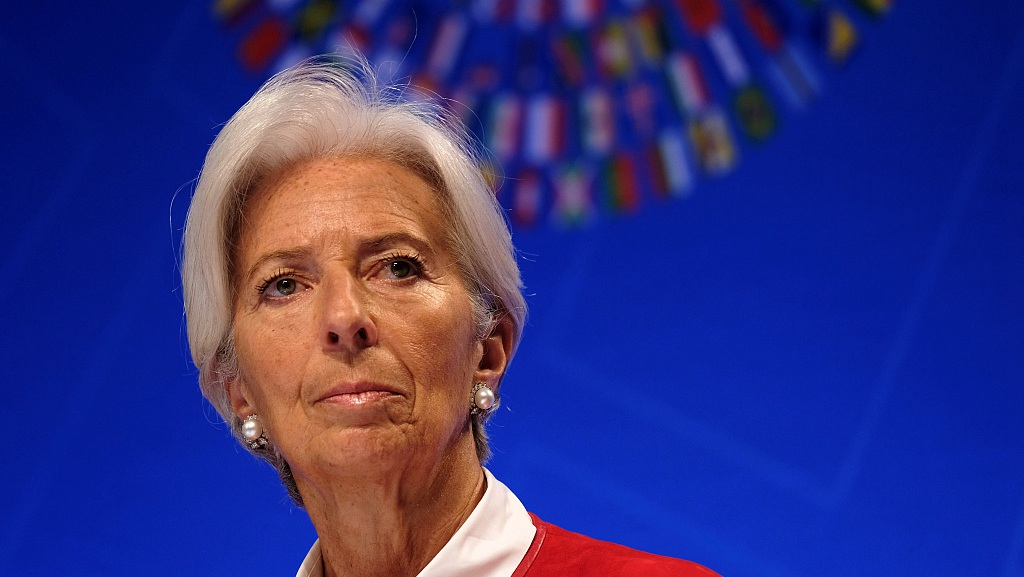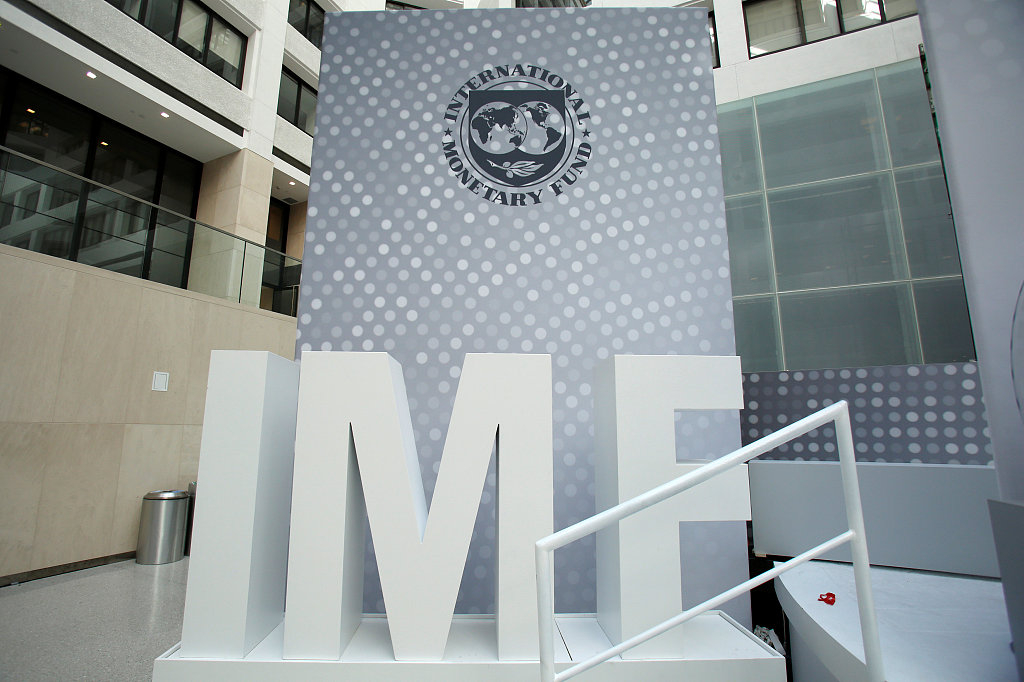
Economy
08:46, 06-Jun-2019
IMF's Lagarde warns of 'growing concerns' over trade tensions
CGTN

Managing Director and Chairman of the International Monetary Fund (IMF) Christine Lagarde warned in a blog post Wednesday of "growing concerns" over the impact of current trade tensions on global growth, urging the removal of existing trade barriers and restraint in erecting new ones.
In an article titled "How to Help, Not Hinder Global Growth," Lagarde highlighted the current global trade tensions, which she said "are looming larger."
There are growing concerns over the impact of the current trade tensions.
- Christine Lagarde
"Most importantly, there are growing concerns over the impact of the current trade tensions," the IMF chief said, adding that the most recent U.S.-China tariffs risk further reducing investment, productivity and growth.
The tariffs that the Trump administration recently threatened to impose on all Mexican imports "are also of concern," she said.
Calling the negative impacts of those trade tensions on global growth "self-inflicted wounds," Lagarde said they must be avoided "by removing the recently implemented trade barriers and by avoiding further barriers in whatever form."
The U.S.-China tariffs levied by and on each other in these two years could reduce global GDP by 0.5 percent in 2020, Lagarde said.
She added that the reduction amounts to a loss of about 455 billion U.S. dollars, which is "larger than the size of South Africa's economy."

International Monetary Fund logo /VCG Photo
International Monetary Fund logo /VCG Photo
Protectionist measures, while hurting growth and jobs, are also making tradable consumer goods less affordable and disproportionately harming low-income households, Lagarde said.
In addition to trade tensions, Lagarde also raised the question of whether an uptick in global growth that the IMF projected in its April's edition of the "World Economic Outlook" will happen as expected.
The managing director mentioned several "significant stumbling blocks" impeding the acceleration in global growth, including the uncertainty in continued growth in advanced economies following the first-quarter momentum, and the possibility of failure or delay of the materialization of previously anticipated improvements in stressed economies.
Source(s): Xinhua News Agency

SITEMAP
Copyright © 2018 CGTN. Beijing ICP prepared NO.16065310-3
Copyright © 2018 CGTN. Beijing ICP prepared NO.16065310-3